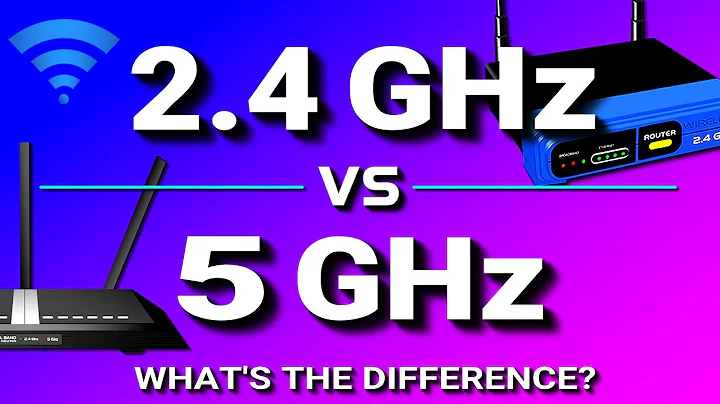What are the key differences between 2.4 Ghz and 5 Ghz Wifi distribution?
Solution 1
My experience lies with the 5.4 Ghz band, but I'm fairly sure this applies to the whole 5Ghz suite.
None of the channels overlap in 5Ghz, in 2.4Ghz, band 1 overlaps 2, 2 overlaps 3, and so on.
5 Ghz can transmit more data (more Hz per second), however it is less robust as a signal (rain really attenuates it for example).
Maximum EIRP for 5Ghz is higher, in europe 1 watt, in the US 2 (iirc) while 2.4 sits at 100 mwatts.
I'm sure there are some other technical differences, but these are the ones I remember.
Solution 2
Less people have 5 Ghz equipment. 5GHz equipment has more channels (~25 usable instead of ~3).
So impagine trying to talk to your friend in a small room with 50 people in it. Let that case be the 2.4GHz example. For our 5Ghz example, your room is both far bigger (5GHz has more channels), and there are less people talking (less people have 5GHz) equipment. So on the 5GHz you will be less likely to be interrupted, and your conversation will be clearer.
would you really go and spend the money on a 5 Ghz
I live in a relatively busy neighbor hood, and yes, I purchased equipment thst supports 5GHz, and it made a huge difference in reliability. If you live out in the sticks, and have no neighbors then it shouldn't matter. Plus it isn't that expensive for the most part.
Related videos on Youtube
Rudolph
Updated on September 18, 2022Comments
-
 Rudolph over 1 year
Rudolph over 1 yearOn my replaced Wifi router, I noticed that there is a choice to make regarding the frequency distribution.
- 802.11g network that run at 2.4 GHz.
- 802.11a network that runs at 5.0 GHz.
Does the Quality of Service get affected by selecting different frequencies? I read both supports up to 54 Mb/s, so max bandwidth might be irrelevant. So why would you run a 5 Ghz network frequency?
Also, I noted that some cordless phones runs at 2.4 Ghz, defining one of Cisco's rules - keep away the Wifi router from devices like those. Most Wifi routers do run at 2.4 Ghz, but if there is interference, and you are too lazy to move the router, would you really go and spend the money on a 5 Ghz - supported router?
-
 Rudolph over 10 yearsThanks for pointing the duplicate. Good explanation there. Will close question.
Rudolph over 10 yearsThanks for pointing the duplicate. Good explanation there. Will close question. -
 shinjijai over 10 yearsIf it's a choice between 802.11a and 802.11g, I would rather use 802.11g because of the more robust security options. But if it was 802.11n 2.4 vs 802.11n 5.0, I would use 5 because of all the reason stated in the answers below.
shinjijai over 10 yearsIf it's a choice between 802.11a and 802.11g, I would rather use 802.11g because of the more robust security options. But if it was 802.11n 2.4 vs 802.11n 5.0, I would use 5 because of all the reason stated in the answers below.




